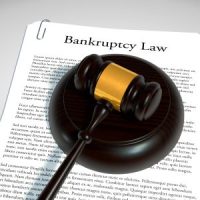The Six Types Of Bankruptcy In Florida

Just as Florida recognizes six types of alimony, it also recognizes six types of bankruptcy filings. Most people you know who have filed for bankruptcy probably filed for chapter 7 or chapter 13 bankruptcy, because these are the categories of bankruptcy protection that apply to individuals. If you know someone who filed for bankruptcy around the time that they closed their small business, then they may have filed for chapter 11 bankruptcy, because this category of bankruptcy is for businesses. No matter which type of bankruptcy you are thinking of choosing, there is more to it than meets the eye. A Boca Raton chapter 7 bankruptcy lawyer can help you decide whether chapter 7 bankruptcy is the best option for you, or whether you should choose a different kind of bankruptcy protection.
Which Bankruptcy Option Makes the Most Sense for You?
When you file for bankruptcy protection, some of your debts get erased. Regarding other debts, you enter into a new debt repayment agreement with creditors; in some cases, this requires you to give up some of your property, so that the court can use it to pay your debts. Individuals filing for bankruptcy protection have four options:
- Chapter 7 bankruptcy requires you to liquidate (sell) assets you own in order to pay some of your debts. Bankruptcy protection aims to protect debtors from abject poverty; therefore, you are allowed to keep the assets you really need, usually including your house and car. If you do not own any valuable assets, there is a liquidation-free option available in some chapter 7 bankruptcy cases.
- Chapter 13 bankruptcy does not involve liquidation of assets. Instead, it requires an agreement to pay a certain amount toward your debts over a five-year period.
- You may be eligible for chapter 12 bankruptcy if your occupation is farming or fishing. This bankruptcy option enables you to keep the equipment necessary to practice your occupation, such as your farmland, tractor, or fishing boat.
- You may be eligible for chapter 15 bankruptcy if your creditors are in foreign countries. The Florida courts work with the courts of the creditors’ countries to agree on a repayment plan.
Chapter 7 and chapter 13 have the widest range of applications, which is why most bankruptcy filers choose chapter 7 or chapter 13 bankruptcy protection. In addition, businesses and other entities with employer identification numbers (EIN), such as nonprofit organizations, can file for chapter 11 bankruptcy. School districts, cities, and municipalities can also file for chapter 9 bankruptcy protection. Regardless of the type of bankruptcy protection that works best in your situation, it is wise to work with a lawyer when filing for bankruptcy, even if the value of your assets is low.
Find Out If Chapter 7 Bankruptcy Is Right for You
A chapter 7 bankruptcy lawyer can help you file for chapter 7 bankruptcy or another bankruptcy category with as little stress and disruption to your life as possible. Contact Nowack & Olson, PLLC in Boca Raton, Florida to discuss your case.
Resource:
nfcc.org/resources/blog/different-chapters-bankruptcy-explained/#:~:text=There%20are%20six%20chapters%20of,the%20most%20common%20forms%20filed
